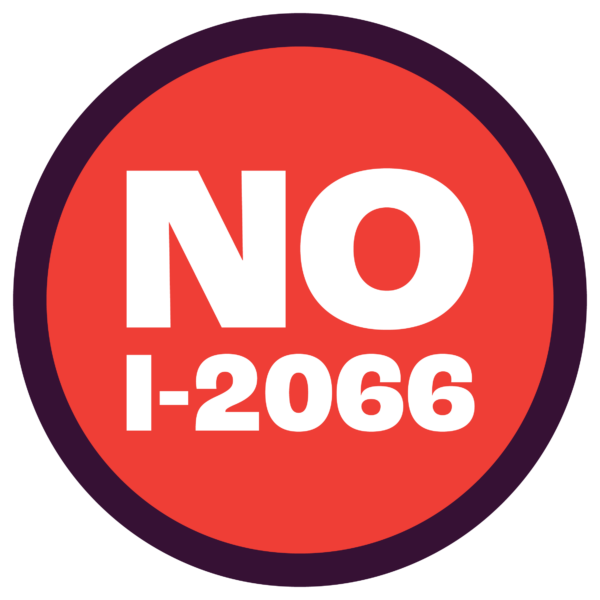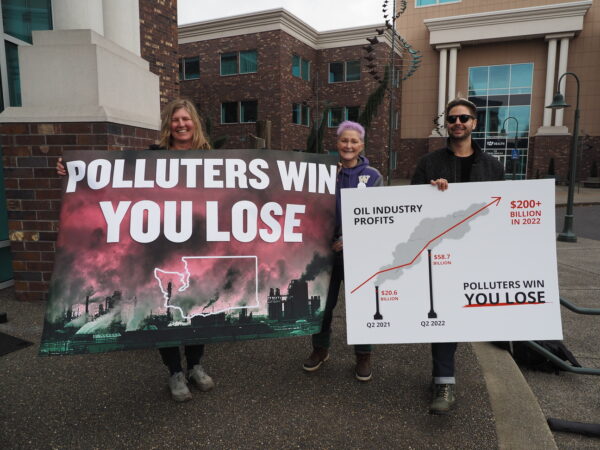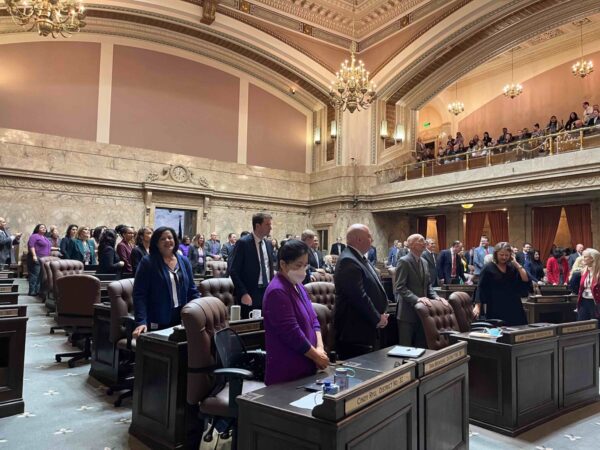Coalition of community, public health, and environmental groups call on Washington Dept. of Ecology to deny proposal
POWER PAST FRACKED GAS
[KALAMA, WA]—Washington state regulators have 30 days to deny or approve the world’s largest fracked gas-to-methanol refinery. Cowlitz County completed its review today, starting a 30-day clock for the Department of Ecology to decide the fate of the project. Governor Jay Inslee announced opposition to the project earlier this year based on the refinery’s significant climate impacts. Northwest Innovation Works’ proposal would consume a stunning amount of fracked gas—more than all other Washington industry combined—and would quickly become Washington’s largest greenhouse gas polluter. The refinery also faces significant opposition from local communities.
“Governor Inslee took a strong stand against this refinery, realizing it will undermine Washington’s clean energy goals. We are counting on Ecology to recognize the threat this project poses to our community and our climate, and to reject the permit,” said Kalama resident Linda Leonard.
“The State of Washington is being asked to sign off on this project based on a woefully inaccurate environmental impact statement,” said Cecile Gernez, Organizer with the Sierra Club Washington State Chapter. “We’re counting on the Department of Ecology to protect our communities by rejecting this dirty and dangerous proposal.”
“We urge Ecology to recognize the risk that the world’s largest fracked gas-to-methanol refinery will pose to our climate, our community, and our state’s clean energy goals,” said Mark Uhart, a Kalama resident. “Northwest Innovation Works continues to dramatically understate the amount of greenhouse gases from the refinery and the fracked gas that it will use. Ecology should recognize these flaws and deny the proposal.”
“Ecology has a clear choice: protect our climate and the Columbia River, or authorize a climate-wrecking fracked gas-to-methanol refinery,” said Dan Serres, Conservation Director for Columbia Riverkeeper. “From day one, the company misled the public and regulators about the methanol refinery’s purpose and impact. Ecology should reject the company’s deceptions and deny this project.”
To date, members of the Power Past Fracked Gas Coalition have submitted nearly 150,000 comments and statements opposing fracked gas proposals in Washington, including Kalama Methanol and Tacoma LNG.
About the project: A subsidiary of the Chinese Academy of Sciences called Northwest Innovation Works proposes building two of the world’s largest fracked gas-to-methanol refineries in Kalama, Washington, and Port Westward, Oregon. Methanol is used to make plastic or burned as fuel. A single refinery could consume 320 million cubic feet of fracked gas per day, more than all other industrial uses in Washington combined. The refinery would emit more than 1 million tons of greenhouse gases each year from the smokestacks alone—and emit up to 7 million tons when “upstream” methane leakage is considered, and an additional 5 million tons if the methanol is burned as a fuel.
Resources:
- Letter Cowlitz County Completion of Review to Ecology Re: FSEIS; September 11, 2019
- Press Release: Environmental Review Ignores Climate Impact of Proposed Kalama Methanol Refinery; August 30, 2019
- SEPA Final Supplemental Environmental Impact Statement, August 2019
###
Power Past Fracked Gas is a growing coalition of Pacific Northwest health, environmental, faith, and community groups that believe in the power of clean energy and the value of clean water. We oppose new fracked gas infrastructure that locks our region into decades of continued reliance on dirty energy and harmful projects.



